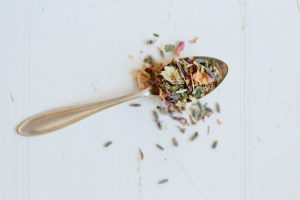The Naturopathic Co.

You're using an outdated browser. Please upgrade your browser to improve your experience.
PCOS and endometriosis are two different conditions that can often be mistaken, and it’s also possible to have them both concurrently.
PCOS is a hormonal condition. It is caused by excess male hormones and irregular ovulation. PCOS may present with polycystic ovaries on an ultrasound, but sometimes may not. However, polycystic ovaries are not abnormal structures, but are developing ovarian follicles or eggs which are normal for the ovary.
With PCOS, abnormal bleeding is usually the result of anovulation, due to low progesterone causing an inability of the uterine lining to mature. This also can cause infertility.
Polycystic ovaries and PCOS don’t cause pain.
Endometriosis is not a hormonal condition, it is an inflammatory disease. It has little (if anything) to do with hormone balance, but instead is an inflammatory disease that causes lesions and ovarian cysts/endometrioma.
Endometriosis is affected by hormone imbalance, but not caused by hormone imbalance. Unlike PCOS, endometriosis does cause pain. In endometriosis, abnormal bleeding is due to the inflammation. Fertility is impaired by inflammation and the lesions, rather than a hormonal imbalance.
Although not officially classed as an autoimmune disease, endometriosis is similar to autoimmune conditions as it’s a whole body inflammatory and immune disease, with likely microbial factors (gram-negative bacteria in the pelvis which translocates from the gut).
The immune dysfunction is what promotes the growth of the lesions and prevents the immune system from healing them.
The only symptoms the two conditions have in common are heavy periods, sometimes spotting between periods, and possible infertility.
If you have both conditions, then the endometriosis should be treated first because it is more serious. Sometimes periods can start to become painful when recovering from PCOS (or coming off the pill), which is a sign that underlying endometriosis may have flared, because endometriosis is sensitive to oestrogen.
If you choose to treat endometriosis naturally, you can also work on treating PCOS at the same time.
If you have irregularities with your menstrual cycle, or any of the symptoms listed above, Make a time to talk to your naturopath, who can devise a tailored treatment plan to assist with your symptoms and healing your condition.
To treat health issues from the underlying cause, make time to see our South Yarra naturopath, Canberra naturopath, Sydney Naturopath, Perth Naturopath, Gold Coast naturopath, or Adelaide Naturopath, or find out if we can help you by booking a FREE 20 minute Discovery Call online via zoom
We offer services in major cities across Australia
Yvette is a qualified Naturopath and Nutritionist, MINDD Practitioner, member of the Naturopaths and Herbalists Association of Australia, and Complementary Medicine Association. Yvette specialises in the treatment of gut health and digestive complaints, skin issues, mood disorders, hormonal concerns, fatigue, and also has a key interest in children’s digestive and neurological conditions.
Adapted from Period Repair Manual, Lara Briden.
Comments are closed.